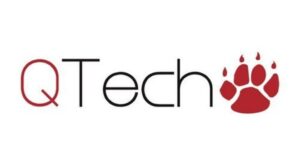Key Moments:
- At least 15 class-action lawsuits have been filed in Utah courts over the past week targeting sweepstakes casinos
- More than 100 lawsuits have been filed nationwide against sweepstakes casino platforms
- Google recently reclassified sweepstakes casinos as “not social,” aligning with increased regulatory scrutiny
Utah Courts See Spike in Class-Action Filings
Utah, recognized for its firm stance against gambling, has recently become the focal point of a wave of class-action lawsuits aimed at sweepstakes casino platforms. According to gaming attorney Daniel Wallach, at least 15 lawsuits emerged in Utah courts over the past week, with Wallach directly reviewing 12 of these complaints. Plaintiffs in these cases allege that sweepstakes casino operators are in violation of state gambling laws and are functioning as unregulated gambling operators, not legitimate social gaming providers.
National Lawsuits Increase Regulatory Pressure
Across the United States, the number of legal actions against sweepstakes casinos has surpassed 100. These filings contend that the sweepstakes casino model is used to circumvent established gambling regulations. Utah’s series of lawsuits adds to the mounting pressure on the sweepstakes sector. Wallach identified approximately 10 companies named in the Utah filings for non-compliance, including:
| Company Name |
|---|
| Stake.us |
| ARB Gaming |
| VGW |
| Blazesoft |
| Money Factor |
| Yellow Social Interactive |
| A1 Development |
| FSG Digital |
| Sunflower |
| KHK Games |
| B2Services |
Utah enforces a particularly uncompromising legal environment, prohibiting not only traditional gambling but also seemingly benign activities such as bingo, charitable lotteries, and raffles. This strict regulatory framework renders it extremely challenging for any social or sweepstakes casino to legally operate in the state.
Platform Classifications and Regulatory Signals
Recent policy changes have increased the pressure on the sweepstakes casino industry. Google has adjusted its classification of sweepstakes casinos to “not social,” which reflects a shifting perception among platforms and regulators. This move supports the argument from critics and regulatory bodies that these platforms are unlicensed gambling operators rather than recreational social games.
Broader Implications for the Sector
Ongoing lawsuits and regulatory actions could soon prompt sweepstakes casino operators to exit Utah. Wallach observed that these developments in Utah are part of a broader national move against sweepstakes-style gambling models. Several other U.S. states have started to increase regulatory action; for example, California has announced its intention to restrict social and sweepstakes casinos beginning in 2026. This decision positions California among the latest jurisdictions to address concerns surrounding the sweepstakes casino model.
As Utah escalates enforcement measures and leading technology companies revise their policies, sweepstakes casinos now face significant uncertainty regarding their legal status and overall viability within the United States.
- Author


